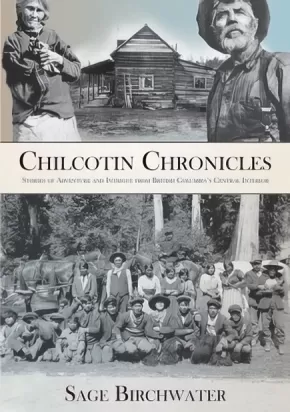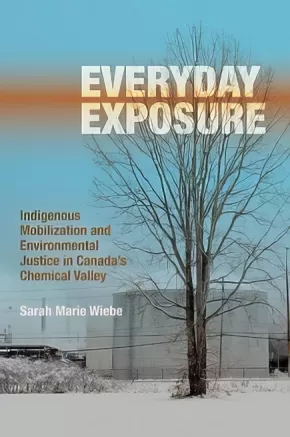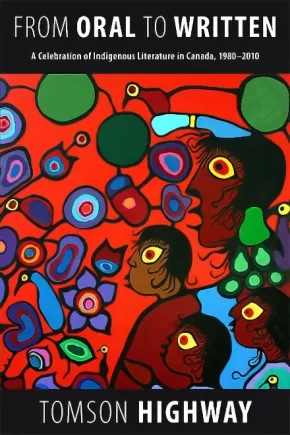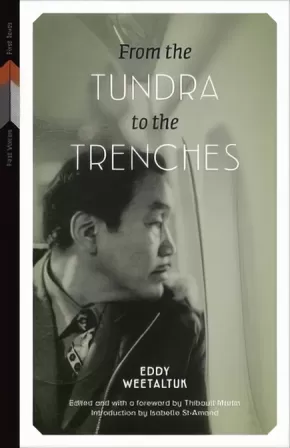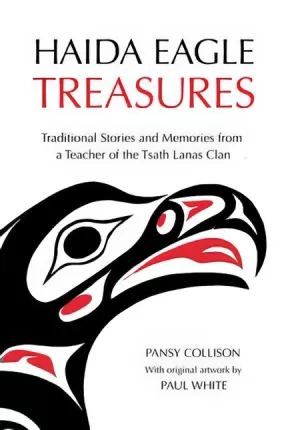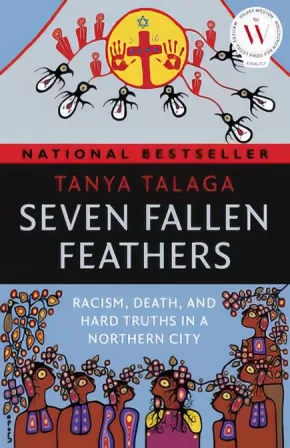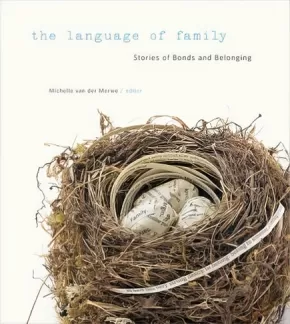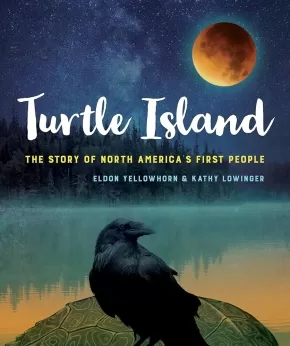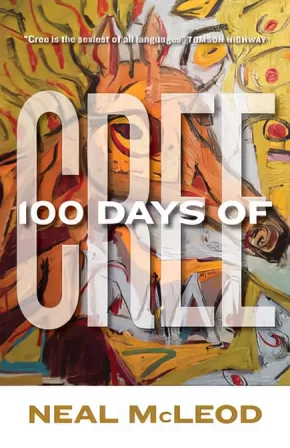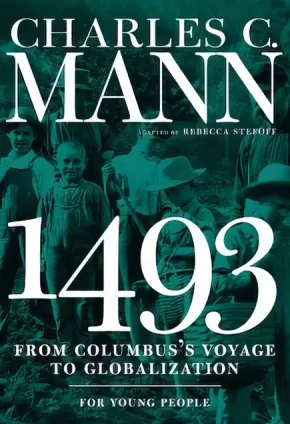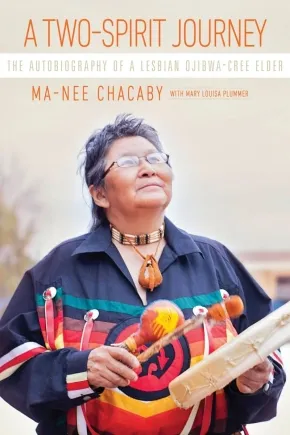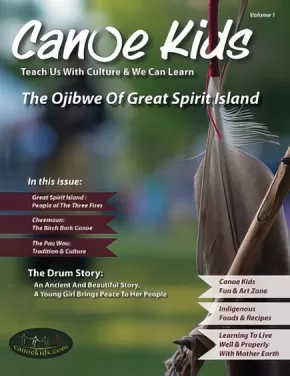
Social Studies
181
-
195
of
279 Results;
Sort By
Go To
of 19
Chilcotin Chronicles
$26.95
Format:
Paperback
Text Content Territories:
Indigenous Canadian; First Nations; Nuxalk (Bella Coola); Dene; Tsilhqot'in (Chilcotin); Dakelh (Carrier);
Grade Levels: 12; University/College;
ISBN / Barcode: 9781987915334
Synopsis:
Synopsis:
A compilation of stories that meld both culture and bloodlines, Chilcotin Chronicles by Sage Birchwater is set in the wild and untamed country of central British Columbia’s Chilcotin Plateau. West of the Fraser River, this high country is contained by an arc of impenetrable mountain ranges that separates it from the Pacific Coast. The first inhabitants of this region were fiercely independent, molded by the land itself. Those who came later were drawn to this landscape with its mysterious aura of freedom, where time stood still and where a person could find solace in the wilderness and never be found.
Birchwater reaches back to first European contact in British Columbia when the indigenous population spoke forty of Canada’s fifty-four languages and seventy of Canada’s one hundred dialects. The land known today as the Cariboo Chilcotin Coast was already an entity when Alexander Mackenzie arrived in 1793. Bonds of friendship, mutual support and family ties had long been established between the Dakelh, Tsilhqot’in and Nuxalk, giving cohesiveness to the region. Chilcotin Chronicles is about the men and women caught in the interface of cultures and the changing landscape. Indigenous inhabitants and white newcomers brought together by the fur brigades, then later by the gold rush, forged a path together, uncharted and unpredictable. Birchwater discovers that their stories, seemingly disconnected, are intrinsically linked together to create a human ecosystem with very deep roots. The lives of these early inhabitants give substance to the landscape. They give meaning to the people who live there today.
Everyday Exposure: Indigenous Mobilization and Environmental Justice in Canada's Chemical Valley
$32.95
Format:
Paperback
Text Content Territories:
Indigenous Canadian; First Nations; Anishinaabeg; Ojibway;
ISBN / Barcode: 9780774832649
Synopsis:
Synopsis:
Surrounded by Canada’s densest concentration of chemical manufacturing plants, members of the Aamjiwnaang First Nation express concern about a declining male birth rate and high incidences of miscarriage, asthma, cancer, and cardiovascular illness. Everyday Exposure uncovers the systemic injustices they face as they fight for environmental justice. Exploring the problems that conflicting levels of jurisdiction pose for the creation of effective policy, analyzing clashes between Indigenous and scientific knowledge, and documenting the experiences of Aamjiwnaang residents as they navigate their toxic environment, this book argues that social and political change requires a transformative “sensing policy” approach, one that takes the voices of Indigenous citizens seriously.
Educator Information
This book would be useful for courses in Environmental Studies, Science, Social Justice, and Social Studies.
Additional Information
280 pages | 6.00" x 9.00"
From Oral to Written: A Celebration of Indigenous Literature in Canada, 1980-2010
$35.00
Format:
Paperback
Text Content Territories:
Indigenous Canadian;
ISBN / Barcode: 9781772011166
Synopsis:
Synopsis:
Aboriginal Canadians tell their own stories, about their own people, in their own voice, from their own perspective.
If as recently as forty years ago there was no recognizable body of work by Canadian writers, as recently as thirty years ago there was no Native literature in this country. Perhaps a few books had made a dent on the national consciousness: The Unjust Society by Harold Cardinal, Halfbreed by Maria Campbell, and the poetry of Pauline Johnson and even Louis Riel. Now, three decades later, Native people have a literature that paints them in colours that are psychologically complex and sophisticated. They have a literature that validates their existence, that gives them dignity, that tells them that they and their culture, their ideas, their languages, are important if not downright essential to the long-term survival of the planet.
Tomson Highway’s From Oral to Written is a study of Native literature published in Canada between 1980 and 2010, a catalogue of amazing books that sparked the embers of a dormant voice. In the early 1980s, that voice rose up to overcome the major obstacle Native people have as writers: they are not able to write in their own Native languages, but have to write in the languages of the colonizer, languages that simply cannot capture the magic of Native mythology, the wild insanity of Trickster thinking. From Oral to Written is the story of the Native literary tradition, written – in multiple Aboriginal languages, in French, and in English – by a brave, committed, hard-working, and inspired community of exceptional individuals – from the Haida Nation on Haida Gwaii to the Mi’kmaq of Nova Scotia’s Cape Breton Island.
Leading Aboriginal author Tomson Highway surveys the first wave of Native writers published in Canada, highlighting the most gifted authors and the best stories they have told, offering non-Native readers access to reconciliation and understanding, and at the same time engendering among Native readers pride in a stellar body of work.
Reviews
“We gratefully acknowledge the work of those artists who have come before, and those that continue, building bridges across our cultures through their authentic words. Tomson Highway’s readings each demonstrate that within our stories, we pass along our teachings and we build upon the strength inside each one of us. We are arriving. Back to our lands, back to our stories, back to our truths, unwrapping old words and sharing wisdom. We, are coming home.” —Terri Mack, Strong Nations
“A rich compilation of Indigenous literature that will be a gift for Canadian school curriculums, also well suited for those Canadians in search of understanding and reconciliation. More importantly this book is what Indigenous people need because, like me, they will discover their lives in the many stories. If I had this as a teenager, I would have understood that I was not alone in the darkness I lived. I would have seen that others found a way out. Bravo, Tomson Highway!” ―Bev Sellars, author of They Called Me Number One: Secrets and Survival at an Indian Residential School and Price Paid: The Fight for First Nations Survival
Educator Information
Recommended in the Canadian Indigenous Books for Schools 2019-2020 resource list as a Teacher Resource.
Additional Information
|
From the Tundra to the Trenches
$24.95
Editors:
Format:
Paperback
Text Content Territories:
Indigenous Canadian; Inuit;
ISBN / Barcode: 9780887558221
Synopsis:
Synopsis:
“My name is Weetaltuk; Eddy Weetaltuk. My Eskimo tag name is E9-422.” So begins From the "Tundra to the Trenches." Weetaltuk means “innocent eyes” in Inuktitut, but to the Canadian government, he was known as E9-422: E for Eskimo, 9 for his community, 422 to identify Eddy.
In 1951, Eddy decided to leave James Bay. Because Inuit weren’t allowed to leave the North, he changed his name and used this new identity to enlist in the Canadian Forces: Edward Weetaltuk, E9-422, became Eddy Vital, SC-17515, and headed off to fight in the Korean War. In 1967, after fifteen years in the Canadian Forces, Eddy returned home. He worked with Inuit youth struggling with drug and alcohol addiction, and, in 1974, started writing his life’s story. This compelling memoir traces an Inuk’s experiences of world travel and military service. Looking back on his life, Weetaltuk wanted to show young Inuit that they can do and be what they choose.
Reviews
“Endlessly interesting; an account of a traditional way of life now lost, a gripping first-hand account of a front-line soldier during the war, and an honest account of a young man’s adventures and misadventures. It is to all our benefit that it has, at last, found its way into print." — Michael Melgaard, The National Post
“Tender, honest, and often raw, Weetaltuk’s storytelling is masterful, engrossing, and deeply human. He has imbued his writing with a philosophical nuance that is characteristically Inuit: very subtle, yet profound." — Siku Allooloo, The Malahat Review
“Recounts the adventures of Inuk veteran Eddy Weetaltuk, from his early life in the North to his escape to the south under an assumed identity, to his enlistment in the Canadian Forces, which took him across the Canadian West, to Japan and Germany, and into battle in Korea. Adopting the name Eddy Vital was necessary in 1951 because the federal government restricted the movement of Inuit people. Through his alias, Weetaltuk was able to see the world; in the army, he experienced equality and respect – all the while never forgetting his true identity as an Inuk. The publication history of From the Tundra to the Trenches is itself a four-decades-long saga of many twists and turns. That it now finds English publication (after first appearing in French and German) owes to the author’s conviction that his life story be read as a work of literature with the makings of a bestseller. Eddy Weetaltuk was right.”— Jade Colbert, The Globe and Mail
“For those interested in Inuit culture it offers the rare and valuable perspective of an Inuk looking out from his culture at the world rather than the world looking in. “ — P. T. Sherrill, CHOICE
Educator & Series Information
From the Tundra to the Trenches is the fourth book in the First Voices, First Texts series, which publishes lost or underappreciated texts by Indigenous writers. This new English edition of Eddy Weetaltuk’s memoir includes a foreword and appendix by Thibault Martin and an introduction by Isabelle St-Amand.
Additional Information
280 pages | 5.50" x 8.50" | 25 colour illustrations, 3 b&w photographs, bibliography
Haida Eagle Treasures: Traditional Stories and Memories from a Teacher of the Tsath Lanas Clan
$24.95
Artists:
Format:
Paperback
Text Content Territories:
Indigenous Canadian; First Nations; Haida; Eagle Clan (Ts'aahl);
ISBN / Barcode: 9781550597486
Synopsis:
Synopsis:
Take a journey into the heart of Haida culture as it is lived and experienced by an extraordinary woman of the Tsath Lanas Eagle Clan. Pansy Collison, a Haida woman born and raised in Old Massett on Haida Gwaii, tells stories of her clan and community, as well as personal narratives about her history and family. Haida Eagle Treasures embodies a strong Haida woman’s voice, offering a rare glimpse inside Haida culture. Each story and memory is a treasure that captures part of the beauty of the Haida worldview and way of life.
Now retired, Pansy taught for 23 years at elementary, secondary, and college levels. From these experiences, she describes some of the challenges and contradictions of living between two worlds. Pansy’s teaching skills, artistic talents, and political affiliations keep her involved in politics and education on Haida Gwaii.
Thirteen original illustrations by Pansy’s brother, Paul White, a gifted artist, teacher, pole carver and designer, provide the guideposts within Haida Eagle Treasures.
Educator Information
Recommended in the Canadian Indigenous Books for Schools 2019-2020 resource list as being useful for grades 8-12 for English Language Arts and Social Studies.
Caution: use of the term "Native" throughout.
Additional Information
244 pages | 6.00" x 9.00" | 2nd Edition
Little Athapapuskow: A Métis Love Story (4 in stock, Out of Print)
$20.00
Artists:
Format:
Paperback
Text Content Territories:
Indigenous Canadian; Métis;
ISBN / Barcode: 9781926795829
Synopsis:
Synopsis:
Little Athapapuskow is collection of poems named after a lake Guy Freedman grew up on near Flin Flon, Manitoba. They represent his efforts to challenge Catholicism and its complicity with the Confederation project, which dismantled the New Nation developing in the Canadian Northwest. The poems are organized into three parts—past, present, and future—and they address the inter-generational impacts of the Church on his family in relation to the doctrine of the Holy Trinity. This book is his love song to his home and to his country.
Educator Information
Recommended resource for Grades 10-12 English Language Arts and Social Studies.
Contains poems about the history of the Métis people, family, love, celebration of culture, colonialism, religion, violence.
Caution: Some poems contain strong language and mature subject matter, such as discussions of violence, alcoholism, and sexuality.
Additional Information
86 pages | 7.25" x 5.75 "
Seven Fallen Feathers: Racism, Death, and Hard Truths in a Northern City
$22.99
Format:
Paperback
Text Content Territories:
Indigenous Canadian; First Nations; Anishinaabeg; Ojibway;
ISBN / Barcode: 9781487002268
Synopsis:
Synopsis:
In 1966, twelve-year-old Chanie Wenjack froze to death on the railway tracks after running away from residential school. An inquest was called and four recommendations were made to prevent another tragedy. None of those recommendations were applied.
More than a quarter of a century later, from 2000 to 2011, seven Indigenous high school students died in Thunder Bay, Ontario. The seven were hundreds of miles away from their families, forced to leave home and live in a foreign and unwelcoming city. Five were found dead in the rivers surrounding Lake Superior, below a sacred Indigenous site. Jordan Wabasse, a gentle boy and star hockey player, disappeared into the minus twenty degrees Celsius night. The body of celebrated artist Norval Morrisseau’s grandson, Kyle, was pulled from a river, as was Curran Strang’s. Robyn Harper died in her boarding-house hallway and Paul Panacheese inexplicably collapsed on his kitchen floor. Reggie Bushie’s death finally prompted an inquest, seven years after the discovery of Jethro Anderson, the first boy whose body was found in the water.
Using a sweeping narrative focusing on the lives of the students, award-winning investigative journalist Tanya Talaga delves into the history of this small northern city that has come to manifest Canada’s long struggle with human rights violations against Indigenous communities.
A portion of each sale of Seven Fallen Feathers will go to the Dennis Franklin Cromarty Memorial Fund, set up in 1994 to financially assist Nishnawbe Aski Nation students’ studies in Thunder Bay and at post-secondary institutions.
Awards
- 2018-2019 First Nation Communities Read
- 2018 RBC Taylor Prize
Reviews
“Talaga has written Canada’s J’Accuse, an open letter to the rest of us about the many ways we contribute — through act or inaction — to suicides and damaged existences in Canada’s Indigenous communities. Tanya Talaga’s account of teen lives and deaths in and near Thunder Bay is detailed, balanced and heart-rending. Talaga describes gaps in the system large enough for beloved children and adults to fall through, endemic indifference, casual racism and a persistent lack of resources. It is impossible to read this book and come away unchanged.” — RBC Taylor Prize Jury Citation
“In Seven Fallen Feathers, Tanya Talaga delves into the lives of seven Indigenous students who died while attending high school in Thunder Bay over the first eleven years of this century. With a narrative voice encompassing lyrical creation myth, razor-sharp reporting, and a searing critique of Canada’s ongoing colonial legacy, Talaga binds these tragedies — and the ambivalent response from police and government — into a compelling tapestry. This vivid, wrenching book shatters the air of abstraction that so often permeates news of the injustices Indigenous communities face every day. It is impossible to read Seven Fallen Feathers and not care about the lives lost, the families thrust into purgatory, while the rest of society looks away.” — Hilary Weston Writers’ Trust Prize for Nonfiction Jury Citation
“[A]n urgent and unshakable portrait of the horrors faced by Indigenous teens going to school in Thunder Bay, Ontario, far from their homes and families. . . . Talaga’s incisive research and breathtaking storytelling could bring this community one step closer to the healing it deserves.” — Booklist, STARRED REVIEW
“Seven Fallen Feathers may prove to be the most important book published in Canada in 2017. Tanya Talaga offers well-researched, difficult truths that expose the systemic racism, poverty, and powerlessness that contribute to the ongoing issues facing Indigenous youth, their families, and their communities. It is a call to action that deeply honours the lives of the seven young people; our entire nation should feel their loss profoundly.” — Patti LaBoucane-Benson, author of The Outside Circle
“[W]here Seven Fallen Feathers truly shines is in Talaga’s intimate retellings of what families experience when a loved one goes missing, from filing a missing-persons report with police, to the long and brutal investigation process, to the final visit in the coroner’s office. It’s a heartbreaking portrait of an indifferent and often callous system . . . Seven Fallen Feathers is a must-read for all Canadians. It shows us where we came from, where we’re at, and what we need to do to make the country a better place for us all.” — The Walrus
Educator Information
The Canadian Indigenous Books for Schools list recommends this resource for Grade 12 English Language Arts and Social Studies.
Curriculum Connections: Indigenous Studies, History, Health
Additional Information
376 pages | 5.50" x 8.50" | 8-page colour insert and maps
Speaking Our Truth: A Journey of Reconciliation
$29.95
Format:
Hardcover
Text Content Territories:
Indigenous Canadian;
ISBN / Barcode: 9781459815834
Synopsis:
Synopsis:
Canada's relationship with its Indigenous people has suffered as a result of both the residential school system and the lack of understanding of the historical and current impact of those schools. Healing and repairing that relationship requires education, awareness and increased understanding of the legacy and the impacts still being felt by Survivors and their families. Guided by acclaimed Indigenous author Monique Gray Smith, readers will learn about the lives of Survivors and listen to allies who are putting the findings of the Truth and Reconciliation Commission into action.
Educator Information
Recommended for grades 4 to 8.
A teacher guide for this resource is also available: Speaking Our Truth Teacher Guide
Additional Information
160 pages | 7.50" x 9.00"
The Language of Family: Stories of Bonds and Belonging
$24.95
Editors:
Format:
Paperback
Text Content Territories:
Indigenous Canadian; First Nations;
ISBN / Barcode: 9780772670526
Synopsis:
Synopsis:
What is family? Is it defined by blood and birth? Or can we invite whomever we want into that intimate embrace?
The Language of Family: Stories of Bonds and Belonging invites readers to pull up a guest chair at the family table.
Twenty contributors from across British Columbia -- museum curators, cultural luminaries, writers and thinkers young and old, from First Nations, LGBTQ, Japanese Canadian and Punjabi communities, among others -- share their vastly different perspectives on what family means in this superb collection of personal narratives, poems and essays.
This collection will provoke, tease, enlighten and infuriate. Isn't that what family does best?
Stories, poems and essays by Sadhu Binning, Martha Black, Don Bourdon, Kathryn Bridge, Tzu-I Chung, Shushma Datt, Mo Dhaliwal, Zoé Duhaime, barbara findlay, Lynn Greenhough, Judith I. Guichon, Lorne F. Hammond, Joy Kogawa, Patrick Lane, Jack Lohman, Luke Marston, Bev Sellars, Monique Gray Smith, Ann-Bernice Thomas and Larry Wong.
Educator Information
Some Indigenous content.
Additional Information
250 pages | 8.50" x 9.49"
Authenticity Note: This book contains contributions from Indigenous writers, which is why it has received the Authentic Indigenous Text label. There are, however, many other contributors who are not Indigenous whose works are also included.
Turtle Island: The Story of North America's First People
$16.95
Format:
Paperback
Text Content Territories:
Indigenous Central American; Indigenous American; Indigenous Canadian;
ISBN / Barcode: 9781554519439
Synopsis:
Synopsis:
Unlike most books that chronicle the history of Native peoples beginning with the arrival of Europeans in 1492, this book goes back to the Ice Age to give young readers a glimpse of what life was like pre-contact. The title, Turtle Island, refers to an Indigenous story that explains how North and Central America were formed on the back of a turtle. Based on archeological finds and scientific research, we now have a clearer picture of how the Indigenous people lived. Using that knowledge, the authors take the reader back as far as 14,000 years ago to imagine moments in time. A wide variety of topics are featured, from the animals that came and disappeared over time, to what people ate, how they expressed themselves through art, and how they adapted to their surroundings. The importance of story-telling among the Native peoples is always present to shed light on how they explained their world. The end of the book takes us to modern times when the story of the Native peoples is both tragic and hopeful.
Educator Information
The Canadian Indigenous Books for School list recommends this resource for Grades 6-9 for Social Studies. It is also listed as a Teacher Resource.
Recommended for ages 11+
Additional Information
116 pages | 7.50" x 9.30" | Paperback
Wrestling with Colonialism on Steroids: Quebec Inuit Fight for their Homeland
$15.95
Format:
Paperback
Text Content Territories:
Indigenous Canadian; Inuit;
Grade Levels: 12; University/College;
ISBN / Barcode: 9781550654684
Synopsis:
Synopsis:
For decades, the Inuit of northern Québec were among the most neglected people in Canada. It took The Battle of James Bay, 1971-1975, for the governments in Québec City and Ottawa to wake up to the disgrace.
In this concise, lively account, Zebedee Nungak relates the inside story of how the young Inuit and Cree "Davids" took action when Québec began construction on the giant James Bay hydro project. They fought in court and at the negotiation table for an accord that effectively became Canada's first land-claims agreement. Nungak's account is accompanied by his essays on Nunavik history. Together they provide a fascinating insight into a virtually unknown chapter of Canadian history.
Additional Information
112 pages | 5.00" x 7.50"
100 Days of Cree
$24.95
Format:
Paperback
Text Content Territories:
Indigenous Canadian; First Nations; Cree (Nehiyawak);
ISBN / Barcode: 9780889774292
Synopsis:
Synopsis:
As an Elder once said, "Learn one Cree word a day for 100 days, and emerge a different person."
In 100 Days of Cree, Neal McLeod offers us a portal into another way of understanding the universe--and our place within it--while demonstrating why this funny, vibrant, and sometimes salacious language is "the sexiest of them all" (according to Tomson Highway).
Based on a series of Facebook posts, the 100 short chapters or "days" in the book present a chain of related words, some dealing with the traditional--the buffalo hunt, the seasons--and others cheekily capturing the detritus of modern life--from Internet slang to Johnny Cash songs to Viagra.
The result is both an introduction to the most widely spoken Indigenous language in Canada and the opportunity to see the world, and ourselves, in another way.
Reviews
"The nonfiction book is divided into 100 themes and offers Cree words and English explanations for everything from traditional subjects such as powwows and medicine to modern subjects such as Facebook and Star Wars. It also includes a guide to pronunciation written by Arok Wolvengrey, a linguist and the author of a Cree-English dictionary. 'When we think about indigenous languages, there’s a part of us that thinks they’re dying languages, ' URP publisher Bruce Walsh said. 'And then this manuscript comes in that demonstrates a living, vital language.' McLeod said that he and Wolvengrey worked to keep a balance between traditional usage and modern adaptations. 'To revitalize our languages, we have to do two things: we have to document the classical terminology, because within that terminology are all of our metaphors and idioms; but we also have to think of how to put old words together, to coin words, to describe the contemporary world.'" — Laura Godfrey, Publishers Weekly
Additional Information
325 pages | 5.50" x 7.00"
1493 for Young People: From Columbus's Voyage to Globalization
$29.95
Format:
Paperback
Text Content Territories:
Indigenous;
ISBN / Barcode: 9781609806637
Synopsis:
Synopsis:
1493 for Young People by Charles C. Mann tells the gripping story of globalization through travel, trade, colonization, and migration from its beginnings in the fifteenth century to the present. How did the lowly potato plant feed the poor across Europe and then cause the deaths of millions? How did the rubber plant enable industrialization? What is the connection between malaria, slavery, and the outcome of the American Revolution? How did the fabled silver mountain of sixteenth-century Bolivia fund economic development in the flood-prone plains of rural China and the wars of the Spanish Empire? Here is the story of how sometimes the greatest leaps also posed the greatest threats to human advancement.
Mann's language is as plainspoken and clear as it is provocative, his research and erudition vast, his conclusions ones that will stimulate the critical thinking of young people. 1493 for Young People provides tools for wrestling with the most pressing issues of today, and will empower young people as they struggle with a changing world.
Educator Information
Recommended for ages 12+
Additional Information
416 pages | 5.50" x 8.00"
A Two-Spirit Journey: The Autobiography of a Lesbian Ojibwa-Cree Elder
$24.95
Format:
Paperback
Text Content Territories:
Indigenous Canadian; First Nations; Anishinaabeg; Oji-Cree;
Grade Levels: 12; University/College;
ISBN / Barcode: 9780887558122
Synopsis:
Synopsis:
A compelling, harrowing, but ultimately uplifting story of resilience and self-discovery.
A Two-Spirit Journey is Ma-Nee Chacaby’s extraordinary account of her life as an Ojibwa-Cree lesbian. From her early, often harrowing memories of life and abuse in a remote Ojibwa community riven by poverty and alcoholism, Chacaby’s story is one of enduring and ultimately overcoming the social, economic, and health legacies of colonialism.
As a child, Chacaby learned spiritual and cultural traditions from her Cree grandmother and trapping, hunting, and bush survival skills from her Ojibwa stepfather. She also suffered physical and sexual abuse by different adults, and in her teen years became alcoholic herself. At twenty, Chacaby moved to Thunder Bay with her children to escape an abusive marriage. Abuse, compounded by racism, continued, but Chacaby found supports to help herself and others. Over the following decades, she achieved sobriety; trained and worked as an alcoholism counsellor; raised her children and fostered many others; learned to live with visual impairment; and came out as a lesbian. In 2013, Chacaby led the first gay pride parade in Thunder Bay.
Ma-Nee Chacaby has emerged from hardship grounded in faith, compassion, humour, and resilience. Her memoir provides unprecedented insights into the challenges still faced by many Indigenous people.
Awards
- 2025 Canada Reads winner
Reviews
“From groundbreaking and controversial AIDS awareness programs in the 1990s to the work she continues to do today, both with her own family and her extended reserve family, her life and this memoir ultimately serve as handbook of hope.” — Lara Rae, Winnipeg Free Press
"A Two-Spirit Journey is a raw and emotional story that doesn’t just show readers the author’s scars. Chacaby bares all in an honest telling of her life that includes flaws, like her struggles with substance abuse and a sometimes rocky path to sobriety. Despite the turmoil, the autobiography does have its uplifting moments and characters. Heartwarming stories of childhood friendships, and most importantly a powerful relationship between the author and her grandmother, weave feelings of optimism and hope into a life that is oftentimes surrounded by darkness.” — Scott Paradis, tbnewswatch.com
“An extraordinary account of an extraordinary life and very highly recommended for community and academic library Contemporary Biography, LGBT, and Native American Studies collections.” — Midwest Book Review
“Activist, survivor, mother, counsellor, Ma-Nee Chacaby recounts her sometimes harrowing life with a calm and steady voice, infused with resilience and compassion. Effectively designed and edited to appeal to both the general public and those engaged in Indigenous studies, A Two-Spirit Journey presents an important story, powerfully told.” — Nik Burton, Rick Walker, and Carolyn Wood, Judges, 2017 Manitoba Book Awards
“The story that Chacaby and Plummer recount is truly an extraordinary one, but it is also one that will resonate with many people whose stories have not been often told. The perspective of a lesbian Ojibwa-Cree elder is invaluable for LGBT Native youth and will be an enriching experience for many others, particularly those who have experienced abuse, disability, poverty, or the effects of colonization.” — Kai Pyle, Studies in American Indian Literatures
Educator Information
This book would be useful for courses in women's studies, social studies, and gender studies. Recommended for students in grade 12 or at a college/university level.
Caution: discussion of physical and sexual abuse.
This resource is also available in French: Un parcours bispirituel: Recit d'une ainee ojibwe-crie lesbienne.
Additional Information
256 pages | 6.00" x 9.00"
Canoe Kids Volume 1: The Ojibwe of Great Spirit Island
$22.95
Format:
Paperback
Text Content Territories:
Indigenous Canadian; First Nations; Anishinaabeg; Ojibway;
ISBN / Barcode: 9781926852072
Synopsis:
Synopsis:
Canoe Kids Vol. 1 The Ojibwe of Great Spirit Island is the first issue of a 24 edition series designed as family books for kids all ages. This eight-year project will see the Canoe Kids Team embed with 24 Peoples. The mandate for the full-colour book (161 full colour high res photographs) is Exploring Indigenous Cultures through Authentic Indigenous Voices. The publication balances culture, equity and the environment in a beautiful mix that reminds the reader of the pictorial quality of National Geographic with a more in depth editorial content.
This first issue (in a series of 24) focuses on the Ojibwe People of Great Spirit Island (Manitoulin Island). In 129 pages the reader is introduced to the Ojibwe People who kindly assisted the Canoe Kids staff by allowing access to their traditional territory. Canoe Kids acknowledges the generosity of the Council of Aundeck Omni Kanning and the People of the six Manitoulin communities.
Educator Information
Each edition follows a common theme and features:
1: Compelling and beautiful pictorials that draw you into the stories and place of the featured community
2: The story of the vessel used by the featured Peoples
3: Art and Food
4: A Kids Zone
5: Resources for kids, parents and educators
6: Stories by and of the featured Peoples in each edition
7: Extraordinary pictures of the lives, land and waters of the featured Peoples
The materials are equal parts cultural and environmental. The latter is a natural offshoot of the former as Indigenous cultures are wrapped around and through the lands and water and sky both spiritually and from a harvesting and gathering perspective. Indigenous Peoples have long been the caretakers of Mother Earth and we can all learn from these experts whose message is perhaps more relevant today than ever.
Indigenous communities have always included the little ones in their circles and talk and teach to them in the same way they talk and teach to young adults and adults. Canoe Kids decided to follow that inclusive way of life for the layout of each book. Rather than create editions for different age groups, Canoe Kids decided to have one book for all ages.
CANOE KIDS is an ideal ongoing resource for teachers and is well received in all libraries. Articles are organized and developed so that there are materials for every age group, grade level, subject and interest.
K through 3 use Canoe Kids to read beautiful and ancient stories. There is beautiful original art to explore and a Kids Zone with puzzles, word searches, colouring, cutouts and more. Mid grades use the materials to study the culture, food and wildlife of the featured cultures. Grades 8 through 12 use stories that are more in depth from Dr. David Suzuki about the environment and there are discussion articles about living well and properly with Mother Nature as well as articles about the history and geography of the featured People.
Additional Information
130 pages | 8.50" x 11.00"
Sort By
Go To
of 19

